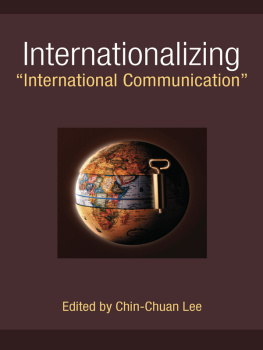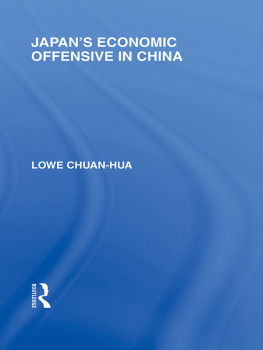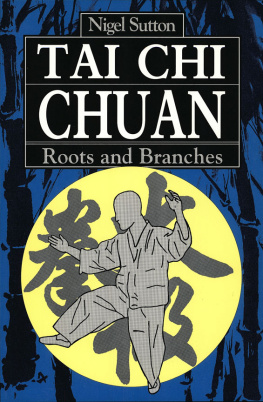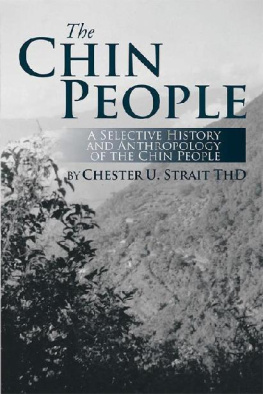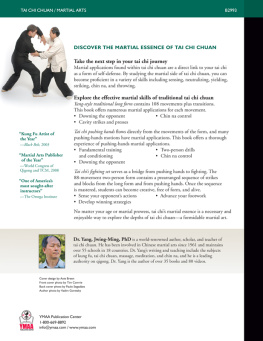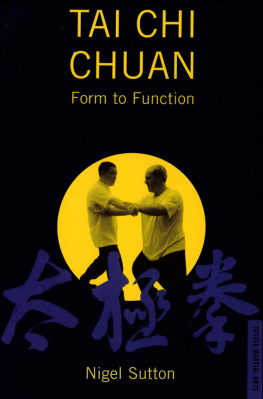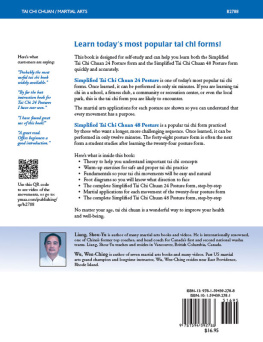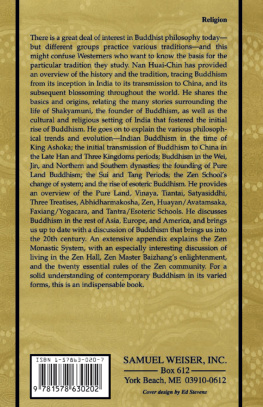Chin-Chuan Lee - Internationalizing “International Communication”
Here you can read online Chin-Chuan Lee - Internationalizing “International Communication” full text of the book (entire story) in english for free. Download pdf and epub, get meaning, cover and reviews about this ebook. year: 2018, publisher: The University of Michigan Press, genre: Politics. Description of the work, (preface) as well as reviews are available. Best literature library LitArk.com created for fans of good reading and offers a wide selection of genres:
Romance novel
Science fiction
Adventure
Detective
Science
History
Home and family
Prose
Art
Politics
Computer
Non-fiction
Religion
Business
Children
Humor
Choose a favorite category and find really read worthwhile books. Enjoy immersion in the world of imagination, feel the emotions of the characters or learn something new for yourself, make an fascinating discovery.
- Book:Internationalizing “International Communication”
- Author:
- Publisher:The University of Michigan Press
- Genre:
- Year:2018
- Rating:3 / 5
- Favourites:Add to favourites
- Your mark:
- 60
- 1
- 2
- 3
- 4
- 5
Internationalizing “International Communication”: summary, description and annotation
We offer to read an annotation, description, summary or preface (depends on what the author of the book "Internationalizing “International Communication”" wrote himself). If you haven't found the necessary information about the book — write in the comments, we will try to find it.
Internationalizing “International Communication” — read online for free the complete book (whole text) full work
Below is the text of the book, divided by pages. System saving the place of the last page read, allows you to conveniently read the book "Internationalizing “International Communication”" online for free, without having to search again every time where you left off. Put a bookmark, and you can go to the page where you finished reading at any time.
Font size:
Interval:
Bookmark:
 Page i Page ii
Page i Page ii Joseph Turow
SERIES EDITOR

Broadcasting, Voice, and Accountability: A Public Interest Approach to Policy, Law, and Regulation
Steve Buckley, Kreszentia Duer, Toby Mendel, and Sen Siochr, with Monroe E. Price and Marc Raboy
Owning the Olympics: Narratives of the New China
Monroe E. Price and Daniel Dayan, editors
The Hyperlinked Society: Questioning Connections in the Digital Age
Joseph Turow and Lokman Tsui, editors
When Media Are New: Understanding the Dynamics of New Media Adoption and Use
John Carey and Martin C. J. Elton
Making News at The New York Times
Nikki Usher
The Media Welfare State: Nordic Media in the Digital Era
Trine Syvertsen, Gunn Enli, Ole J. Mjs, and Hallvard Moe
Internationalizing International Communication
Chin-Chuan Lee, editor
Imagining the Global: Transnational Media and Popular Culture Beyond East and West
Fabienne Darling-Wolf
DIGITALCULTUREBOOKS, an imprint of the University of Michigan Press, is dedicated to publishing work in new media studies and the emerging field of digital humanities.
Page iiiCHIN-CHUAN LEE, EDITOR
UNIVERSITY OF MICHIGAN PRESS
ANN ARBOR
Copyright by Chin-Chuan Lee 2015
Some rights reserved

This work is licensed under the Creative Commons Attribution-Noncommercial-No Derivative Works 3.0 United States License. To view a copy of this license, visit http://creativecommons.org/licenses/by-nc-nd/3.0/ or send a letter to Creative Commons, 171 Second Street, Suite 300, San Francisco, California, 94105, USA.
Published in the United States of America by the
University of Michigan Press
Manufactured in the United States of America Printed on acid-free paper
Printed on acid-free paper
2018 2017 2016 2015 4 3 2 1
A CIP catalog record for this book is available from the British Library.
DOI: http://dx.doi.org/10.3998/nmw.12748916.0001.001
Library of Congress Cataloging-in-Publication Data
Internationalizing international communication / Chin-Chuan Lee, editor.
pages cm. (The new media world)
Includes bibliographical references and index.
ISBN 978-0-472-07244-6 (hardcover : alk. paper) ISBN 978-0-47205244-8 (pbk. : alk. paper) ISBN 978-0-472-12078-9 (ebook)
1. Communication, International. I. Li, Jinquan,
1946editor.
P96.I5I55 2014
302.2dc23
2014024947
Page v
Chin-Chuan Lee
Elihu Katz
Tsan-Kuo Chang
Jan Servaes
Paolo Mancini
Michael Curtin
Jaap van Ginneken Page vi
Colin Sparks
Silvio Waisbord
Chin-Chuan Lee
Judy Polumbaum
Zhang Longxi
Rodney Benson
Peter Dahlgren
Arvind Rajagopal
Critical Reflections and a New Point of Departure
Chin-Chuan Lee
Various attempts (Curran & Park, 2000; Thussu, 2009; Wang, 2011) have been made in recent years to de-Westernize or internationalize media studies. What justifies another volume seeking to internationalize what is purported to be the most internationalized subfield in the whole gamut of media and communication studies? In short, it is because international communication as a field of inquiry actually is not very internationalized. But why should we fix our horizon on international instead of, say, intercultural communication, or the even trendier global communication? First, it should be acknowledged that nation-states remain central to any theories and practice of the contemporary world order, and that international communication is always (but not completely) intermixed with intercultural communication. Second, international processes obviously are increasingly globalized. However, we wish to emphasize a double-bind fact: if democracy is to survive in the post-communist world, as Alain Touraine (1997) maintains, it must somehow protect the power of the nation-state at the same time as it limits that power, for only the state has sufficient means to counterbalance the global corporate wielders of money and information.
Perusing three major handbooks as signposts immediately discloses that international communication has led a relatively marginal existence in the pantheon of media and communication studies. The more generous Page 2 treatment was given in what was legitimately claimed to be the most comprehensive anthology, Handbook of Communication (1973), which ran over 1,000 pages under the eminent editorship of Ithiel de sola Pool and Wilbur Schramm. Six out of 31 chapters (approximately one-fifth), all written by political scientists, addressed in whole or in part selected issues of international communication. All the topics nonetheless concentrated on vital Cold War concerns of the United States: international propaganda, Third World modernization, communication systems in primitive societies, and Communist/totalitarian communication systems. There was a sequel after a lapse of 14 years, the Handbook of Communication Science, edited by Charles Berger and Steven Chaffee (1987). Amid its self-congratulatory claim to the self-sufficient status of communication science, this volume turned cripplingly inward-looking. Showing little welcoming gesture to social scientists from other sister disciplines, it devoted only one chapter to cross-cultural comparisons, and none to substantive issues of international communication. An updated Handbook of Communication Science, edited by Berger, Roloff, and Roskos-Ewaldsen (2010), devoted only one token chapter out of 29 to intercultural communication. What comes to mind is local TV news practice in the United States of covering the world in a minute.
Surely international matters deserve more time, space, and concerted attention. Why have they been so neglected in our field? Asserting the hard-nosed presumption that science is of universal applicability, those defining the field through these influential anthologies did not seem to believe that cross-cultural, national, or systemic differences should matter. The world amounted, ontologically and epistemologically, to America writ large. This prevailing stream of (un)consciousness was widely shared among most members of the U.S. social science community for decades, following on Lerners conviction (1958) that the entire developing world was emulating the American model in a linear progression to modernization. Moreover, well into the 1980s, even as scholars of communication sought to define their realm as one of overweening importance, the fields vision seemed to be narrowing. Even a cursory glance at the table of contents of the three defining volumes shows an inexorable move toward the process of what Geertz (1963) calls involution, characterized by greater self-absorption, isolationism, internal development, and parochialismand this in spite of the vast and rapid march of globalizing processes out there. Under the pretense of science (more aptly, scientism), the succeeding generations of editors have embraced a far narrower horizon of global landscape than their mentors.
Font size:
Interval:
Bookmark:
Similar books «Internationalizing “International Communication”»
Look at similar books to Internationalizing “International Communication”. We have selected literature similar in name and meaning in the hope of providing readers with more options to find new, interesting, not yet read works.
Discussion, reviews of the book Internationalizing “International Communication” and just readers' own opinions. Leave your comments, write what you think about the work, its meaning or the main characters. Specify what exactly you liked and what you didn't like, and why you think so.

